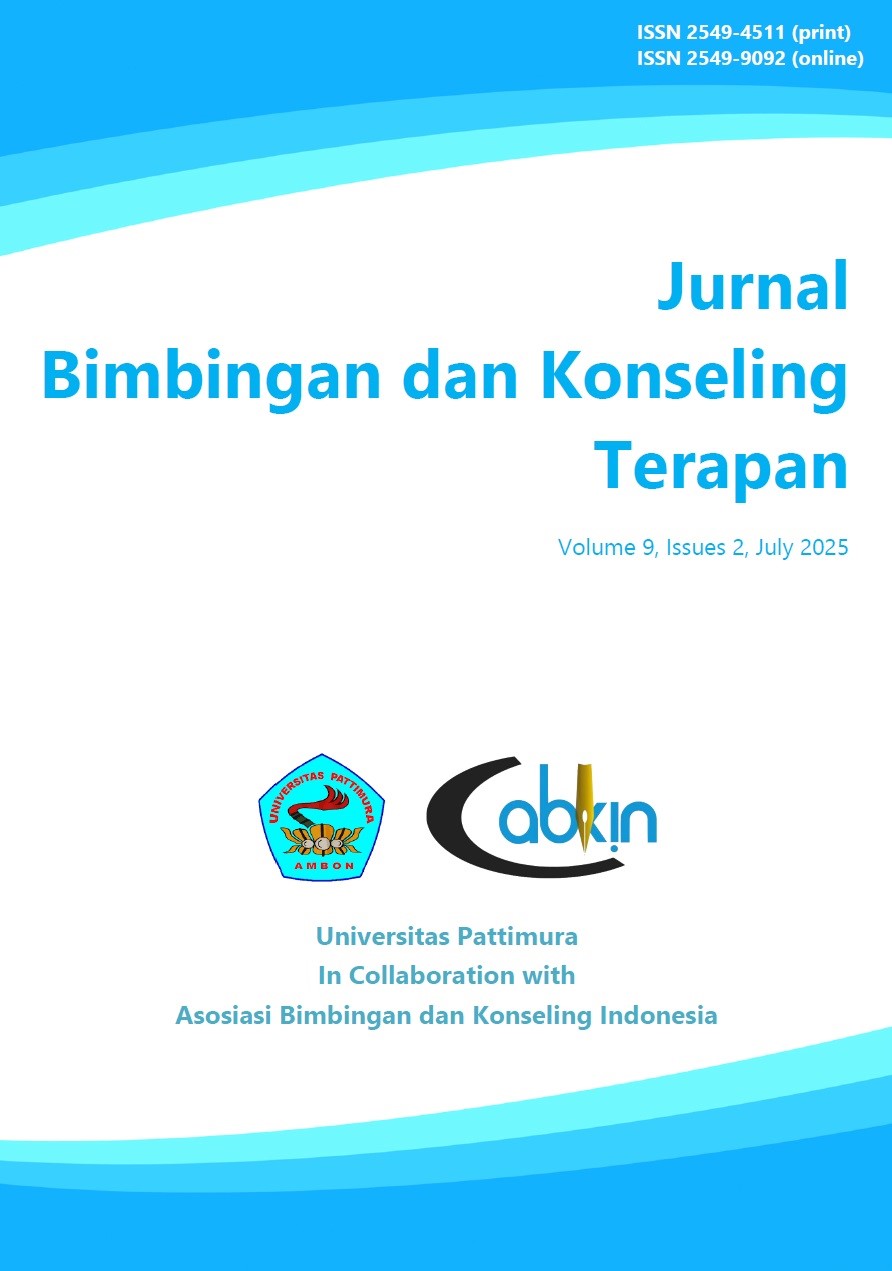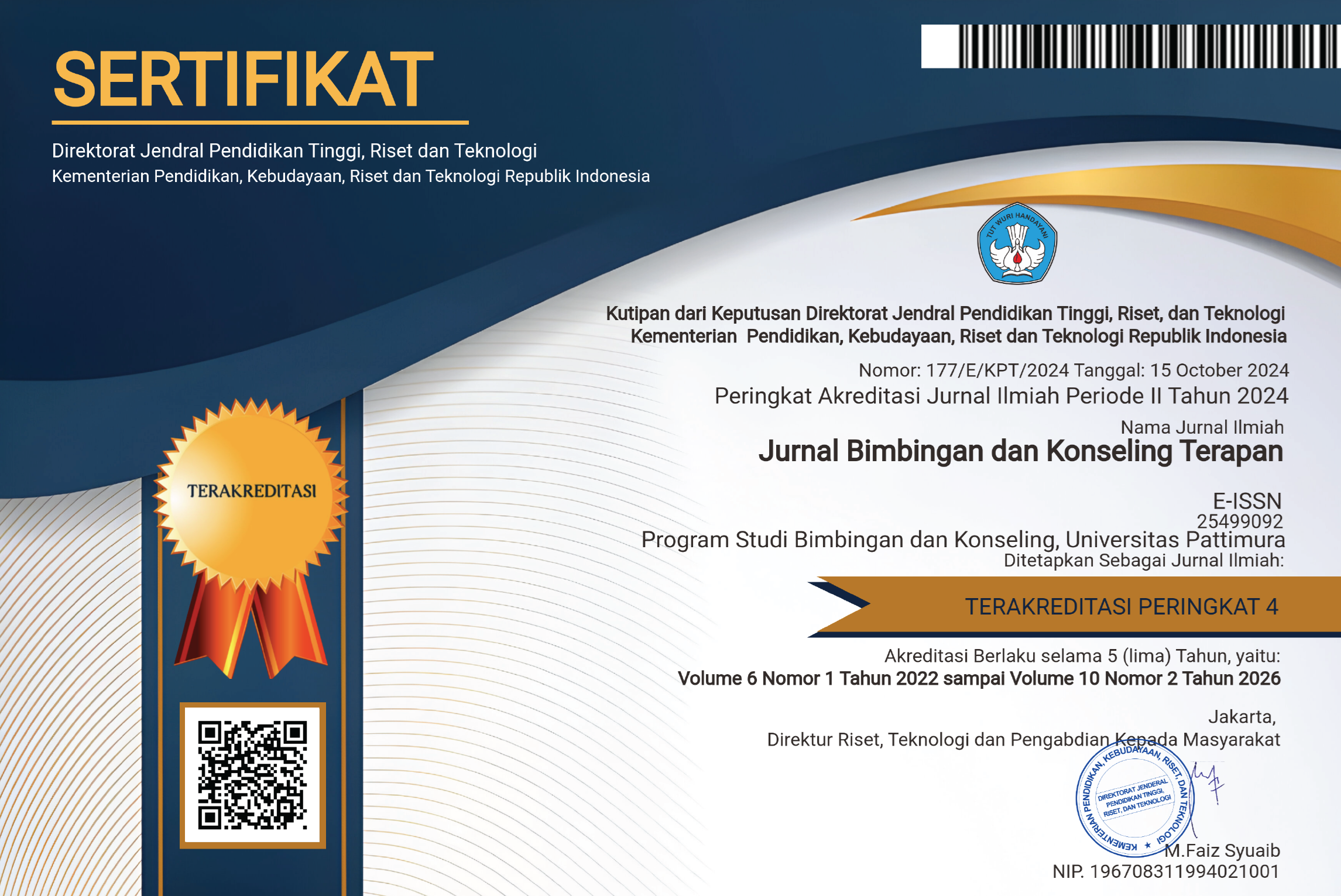Developing and Validating a Self-Actualization Guidance Module to Foster Student Self-Acceptance
Abstract
Self-acceptance plays a fundamental role in adolescent development, serving as the basis for healthy identity formation, confidence, and social interaction. However, research and field observations reveal that many students continue to struggle with low self-acceptance of their personal values, a problem that can hinder their holistic growth and psychological well-being. This study aimed to develop and assess the effectiveness of a guidance module based on self-actualization principles to enhance self-acceptance among seventh-grade students at MTs Negeri 2 Jember. Employing a Research and Development (R&D) approach and the ADDIE model—analysis, design, development, implementation, and evaluation—the module was validated by media and material experts before limited-scale implementation. Data were collected using unstructured interviews, questionnaires, and both qualitative and quantitative analysis techniques. Results showed that prior to the intervention, all participants were categorized as having low self-acceptance, with an average score of 25.2%. After participating in group guidance sessions using the module, 80% of students improved to a moderate category, with only two remaining low, primarily due to external family factors. These findings suggest that the self-actualization-based module is both feasible and effective in increasing students' self-acceptance and can serve as a practical tool for guidance counselors in schools. The study contributes an empirically validated intervention and demonstrates the value of systematic module development. Future research should involve larger samples, explore long-term impacts, and consider integrating family engagement strategies for even greater effectiveness.












